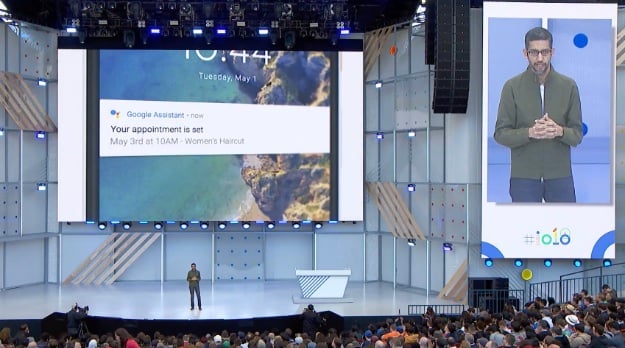Google Duplex AI Reservation Service Still Relies Heavily On Human Handlers
Google has been making greats strides to bring its Duplex reservation service to more states. For those not in the know, Google Duplexuses advanced artificial intelligence (AI) to automatically make reservations for you (i.e. dinner for two at a restaurant). You tell the Google Assistant where you want to eat, what day/time, and how many people will be attending; Duplex then places the call for you -- using an incredibly human-like voice -- and books the reservation.

A new report from the New York Times has indicated that humans actually need to intervene in quite a few cases for current Duplex reservations. In fact, as many as 25 percent of calls are actually initiated by a human in a Duplex call center. The report goes on to state that 15 percent of calls that are initially handled by Duplex AI end up getting routed back to a human at a call center to actually complete the reservation.
However, the publication's own testing showed that it witnessed an even higher degree of human intervention. Out of four successful restaurant bookings that it placed through Duplex over the course of several days, three had to be processed by humans instead of being handle end-to-end by AI.
Google promised that Duplex AI would revolutionize how we make reservations for restaurants, but we're still not quite there yet. But in the cases where Duplex was able to handle the reservation on its own without human intervention, it was often very impressive.
In an instance where a Duplex reservation was placed at the Bowl'd Korean Restaurant in Albany, the Duplex AI caller mimicked human speech patterns with pauses and "ums" and even managed to deftly dance around an unexpected question from Bowl'd manager Jin Park. "The bot patiently answered the questions again and again. Then, Mr. Park threw a curveball: 'Are there any kids?'
"The Google bot was quick to improvise: 'I’m actually booking on behalf of a client, so I’m not too sure".
So, while Duplex shows some obvious signs of brilliance, there is still a lot of data that needs to be fed into the system before it can truly get these human intervention numbers to drop significantly. To hear recording of Duplex in action in a real-world setting check out the NYT link here.

